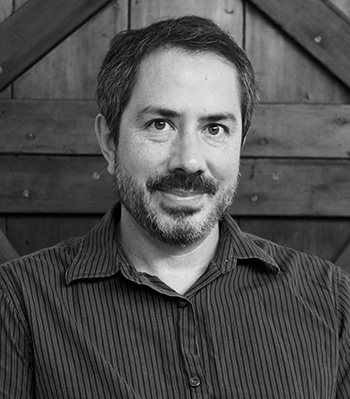Campus News
Physicist Anthony Aguirre appointed to endowed chair in physics of information
Faggin Family Presidential Chair for the Physics of Information supports research and teaching to address fundamental questions

UC Santa Cruz has appointed physics professor Anthony Aguirre to the Faggin Family Presidential Chair for the Physics of Information. The endowed chair was established in 2015 with a $500,000 gift from physicist and technology innovator Federico Faggin and matching funds from the UC Regents.
Aguirre said funds from the endowed chair will support projects using information theory to address fundamental questions at the interface of physics and related fields, including cosmology, biophysics, and cognitive science.
“We live in the information age, and while we generally think about physics as being about matter, energy, space, and time, it turns out that in many cases it is also about information,” Aguirre said. “Quantum mechanics, our theory of particles, and general relativity, our theory of gravity, both have intimate ties to information theory. Quantum information theory is a major research area and underlies nascent technologies like quantum computing, and many think the mysterious ways that black holes keep and release information hold keys to quantum gravity.”
Information theory can also provide a common currency between seemingly disparate topics, he said. Scientists have found that ideas from information theory have applications in a wide range of fields, from cosmology to biology. Aguirre said his research group has been thinking about information in relation to black holes, and has begun working on projects relating information theory to cosmology and other topics.
This work is being done in collaboration with physics professor Josh Deutsch, who specializes in biophysics, and a joint postdoctoral researcher with a background in quantum information theory, as part of a project run by the Foundational Questions Institute. Aguirre is a cofounder of the Foundational Questions Institute, which organized an international conference on the physics of information in 2014.
“I’ve gotten fascinated by a whole list of questions that go across some of these disciplinary boundaries,” Aguirre said. “Can we use theorems proven partly for use in chemistry and biophysics to understand the large-scale structure of the Universe? Or tools from theoretical computer science to inform our understanding of evolution? Maybe! In conjunction with the Foundational Questions Institute project, this endowed chair will help fund meetings and students to nucleate an interdisciplinary group at UCSC and nearby institutions thinking about different aspects of the physics of information and how it might help unify and deepen our understanding of many phenomena.”
Aguirre earned his B.S. in mathematics and physics at Brown University and M.S. and Ph.D. in astronomy at Harvard University. He joined the UCSC faculty in 2003.